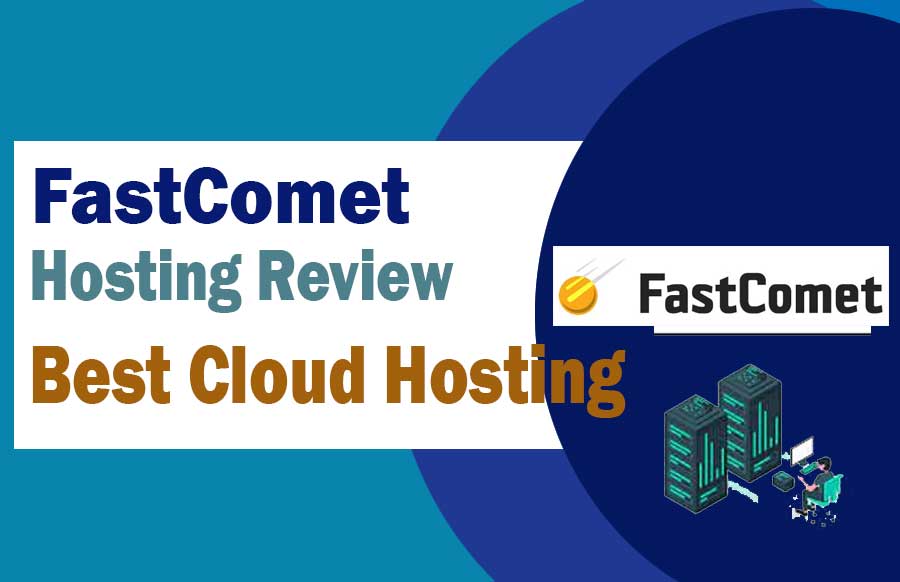Cloud server hosting services have revolutionized the way businesses operate, offering a flexible and scalable platform for everything from websites to complex applications. Gone are the days of bulky physical servers; now, businesses can access computing resources on demand, paying only for what they use. This shift has unlocked unprecedented potential for growth and innovation, empowering companies to adapt quickly to changing market demands.
The cloud server hosting landscape is diverse, with different service models catering to specific needs. Infrastructure as a Service (IaaS) provides raw computing power, while Platform as a Service (PaaS) offers a more complete development environment. Software as a Service (SaaS) delivers ready-to-use applications, eliminating the need for complex installations. Each model has its own advantages, and choosing the right one depends on factors such as budget, technical expertise, and desired level of control.
Types of Cloud Server Hosting Services

Cloud server hosting services are broadly categorized into three main types: Infrastructure as a Service (IaaS), Platform as a Service (PaaS), and Software as a Service (SaaS). Each type offers a different level of control and flexibility, catering to diverse needs and technical expertise.
Infrastructure as a Service (IaaS)
IaaS provides the most granular level of control, allowing users to manage and configure their own virtual servers, storage, and networking resources. Users have complete control over the underlying infrastructure, similar to owning a physical server, but with the added benefits of scalability, flexibility, and cost-effectiveness.
IaaS providers offer virtualized computing resources, such as virtual machines (VMs), storage, and networking, allowing users to deploy and manage their own operating systems and applications.
- Key Features:
- Complete control over the underlying infrastructure.
- Scalability and flexibility to adjust resources based on demand.
- Cost-effectiveness by paying only for the resources used.
- Suitable for organizations with in-house technical expertise and a need for granular control.
- Popular IaaS Providers:
- Amazon Web Services (AWS)
- Microsoft Azure
- Google Cloud Platform (GCP)
- DigitalOcean
- Linode
Platform as a Service (PaaS)
PaaS provides a development platform with pre-configured tools and services, simplifying the deployment and management of applications. Developers can focus on building and deploying applications without worrying about the underlying infrastructure.
PaaS providers offer a complete development environment, including operating systems, databases, middleware, and programming languages, simplifying application development and deployment.
- Benefits for Developers:
- Simplified application development and deployment.
- Pre-configured tools and services for rapid development.
- Reduced infrastructure management overhead.
- Scalability and flexibility to adjust resources based on demand.
- Popular PaaS Providers:
- Heroku
- Google App Engine
- AWS Elastic Beanstalk
- Microsoft Azure App Service
- Salesforce Heroku
Software as a Service (SaaS)
SaaS provides ready-to-use applications accessed over the internet, eliminating the need for installation and maintenance. Users can access and use the software without worrying about infrastructure or software updates.
SaaS providers offer complete applications accessible through a web browser or mobile app, eliminating the need for installation and maintenance.
- Impact on Businesses:
- Reduced IT costs and overhead.
- Improved accessibility and collaboration.
- Simplified software updates and maintenance.
- Increased productivity and efficiency.
- Popular SaaS Providers:
- Google Workspace (Gmail, Docs, Drive)
- Microsoft Office 365
- Salesforce
- Zoom
- Dropbox
Cloud Server Security and Management

In today’s digital landscape, where businesses increasingly rely on cloud computing, ensuring the security and integrity of data is paramount. Cloud server security and management encompass a comprehensive set of measures to protect sensitive information, maintain operational efficiency, and comply with industry regulations.
Data Security and Compliance
Data security and compliance are fundamental aspects of cloud server management. Organizations must prioritize the protection of sensitive information, adhering to relevant industry regulations and best practices. Data security involves implementing measures to safeguard data from unauthorized access, modification, or destruction. Compliance refers to adhering to specific standards and regulations, such as the General Data Protection Regulation (GDPR) or the Health Insurance Portability and Accountability Act (HIPAA), depending on the industry and data handled.
Security Measures
Firewalls, intrusion detection systems, and other security measures play a crucial role in safeguarding cloud server environments.
- Firewalls act as a barrier between the cloud server and the external network, blocking unauthorized access attempts. They examine incoming and outgoing network traffic, allowing only authorized connections.
- Intrusion detection systems (IDS) monitor network traffic for suspicious activity, alerting administrators to potential security breaches. They analyze patterns and anomalies, identifying malicious attempts to exploit vulnerabilities.
- Anti-malware software protects against malware, such as viruses, worms, and Trojans, that can compromise system security and steal sensitive data.
- Regular security updates are essential to patch vulnerabilities and strengthen defenses against emerging threats.
- Data encryption safeguards data in transit and at rest, making it unreadable to unauthorized individuals.
Cloud Server Performance Management
Monitoring and managing cloud server performance is crucial for ensuring optimal operation and preventing performance degradation. Regular monitoring helps identify potential issues early, enabling timely intervention and minimizing downtime.
- Performance monitoring tools provide real-time insights into server resource utilization, network bandwidth, and application response times.
- Resource optimization involves adjusting server configurations, scaling resources up or down as needed, and optimizing application code to enhance performance.
- Regular backups safeguard against data loss due to hardware failures, software errors, or cyberattacks.
Securing Data and Preventing Unauthorized Access, Cloud server hosting services
Data security and access control are paramount in cloud environments. Organizations must implement robust measures to prevent unauthorized access and ensure data confidentiality.
- Strong passwords and multi-factor authentication enhance account security, making it more difficult for unauthorized individuals to gain access.
- Access control lists (ACLs) define specific permissions for users and applications, limiting access to authorized resources.
- Regular security audits help identify vulnerabilities and ensure compliance with security policies.
- Employee training is essential to raise awareness about security threats and best practices for protecting sensitive information.
Conclusion

The journey through the realm of cloud server hosting has revealed a transformative landscape where businesses can unlock unparalleled potential. From understanding the diverse types of cloud server hosting services to navigating the intricacies of security and management, we’ve explored the key pillars that underpin this dynamic technology.
Cloud server hosting empowers businesses with a range of benefits, including:
Benefits of Cloud Server Hosting
- Enhanced Scalability: Cloud servers offer unparalleled scalability, allowing businesses to adjust resources on demand. As your business grows, you can easily scale up your infrastructure to accommodate increased workloads, ensuring seamless performance. Conversely, during periods of low activity, you can scale down to optimize costs, making cloud hosting a cost-effective solution.
- Increased Flexibility: Cloud servers provide flexibility by enabling businesses to access resources from anywhere with an internet connection. This allows teams to collaborate remotely, access data securely, and manage their infrastructure with ease, fostering a more agile and responsive work environment.
- Cost Savings: Compared to traditional on-premises servers, cloud hosting can significantly reduce capital expenditures (CAPEX) by eliminating the need for hardware purchases, maintenance, and physical space. Instead, businesses can opt for a pay-as-you-go model, paying only for the resources they consume, leading to substantial cost savings.
- Improved Security: Cloud providers invest heavily in security measures to protect data and infrastructure. They employ advanced security protocols, firewalls, and intrusion detection systems to safeguard against cyber threats, providing a more secure environment compared to managing security in-house.
- Enhanced Reliability: Cloud servers offer high availability and redundancy, ensuring uninterrupted service even in the event of hardware failures. Cloud providers maintain multiple data centers and employ load balancing techniques to distribute traffic across different servers, minimizing downtime and maximizing service reliability.
Ending Remarks: Cloud Server Hosting Services
Cloud server hosting has become an essential tool for modern businesses, enabling them to scale operations, optimize performance, and enhance security. By embracing the flexibility and scalability of cloud platforms, companies can streamline their IT infrastructure, reduce costs, and focus on what matters most: delivering exceptional customer experiences and achieving their business goals. The future of cloud hosting is bright, with emerging technologies like edge computing and serverless computing poised to further transform the landscape. As businesses continue to adopt cloud solutions, the benefits will only grow, paving the way for a more agile and innovative future.




